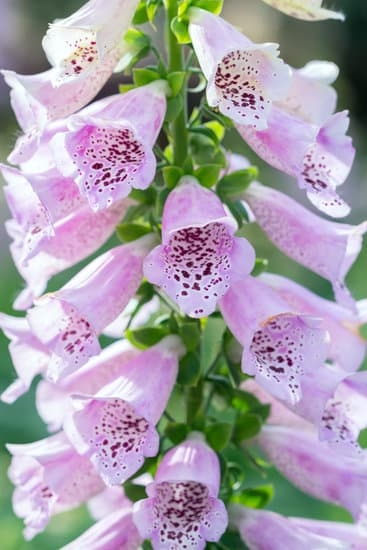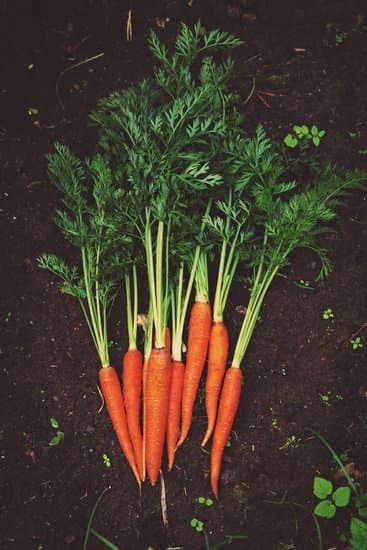Herbs gardening ideas open up a world of possibilities for both seasoned gardeners and beginners alike. Whether you have a green thumb or are just starting to explore the joys of gardening, growing herbs can be a rewarding and beneficial experience. From enhancing the flavors of your culinary creations to adding beauty and fragrance to your outdoor space, herbs gardening offers numerous advantages.
One of the key benefits of herbs gardening is the convenience of having fresh herbs right at your fingertips. Imagine stepping outside your door to snip some basil or mint for your recipes, knowing they were grown with care in your own garden. Not only does this provide a sense of satisfaction, but it also ensures that you are using high-quality, organic herbs in your cooking.
When embarking on your herbs gardening journey, selecting the perfect spot for your herb garden is essential. Whether you have a spacious backyard or limited space on a balcony or windowsill, there are creative ways to cultivate an herb garden that thrives in any environment. By choosing the right location with adequate sunlight and proper drainage, you can set yourself up for success in growing a variety of herbs to suit your needs and taste preferences.
Benefits of Growing Herbs in Your Garden
Growing herbs in your garden has a multitude of benefits beyond just adding flavor to your dishes. One of the main advantages of having an herb garden is the convenience it provides.
Instead of having to run to the store every time you need a sprig of rosemary or a handful of basil, you can simply step outside and pick what you need fresh from your herb garden. This not only saves you time and money but also ensures that you’re using the freshest ingredients possible in your cooking.
In addition to the convenience factor, growing herbs in your garden can also contribute to your overall well-being. Many herbs have medicinal properties and are known for their health benefits. For example, lavender is often used for its calming effects, while peppermint is known for aiding digestion. Having these herbs readily available in your garden allows you to incorporate them into teas, remedies, and natural products for a holistic approach to wellness.
Another benefit of growing herbs in your garden is the environmental impact it can have. By cultivating herbs at home, you reduce the need for commercially grown herbs that are often shipped long distances, resulting in a lower carbon footprint.
Additionally, growing your own herbs gives you control over how they are grown and harvested, allowing you to choose organic methods and avoid harmful pesticides.Overall, incorporating herbs gardening ideas into your backyard not only enhances the beauty of your outdoor space but also provides numerous practical benefits for both you and the environment.
Selecting the Perfect Spot for Your Herb Garden
When it comes to selecting the perfect spot for your herb garden, there are a few key factors to consider that can make a big difference in the success of your plants. First and foremost, most herbs thrive in sunny locations, so it is important to choose an area in your garden that receives at least 6-8 hours of sunlight per day. This will ensure that your herbs have the necessary light to grow and flourish.
In addition to sunlight, you also need to consider the soil quality of the spot where you plan to plant your herb garden. Herbs prefer well-draining soil with good fertility levels. If your garden soil is not ideal for growing herbs, you can improve it by adding organic matter such as compost or aged manure. Alternatively, you can opt for container gardening and use a high-quality potting mix instead.
Another important consideration when selecting the perfect spot for your herb garden is proximity to water. Herbs generally require consistent moisture levels to thrive, so make sure that your chosen location is easily accessible for watering. Whether you opt for traditional in-ground planting or container gardening, ensuring that your herbs receive adequate water will help them grow strong and healthy.
| Aspect | Details |
|---|---|
| Sunlight | Herbs need at least 6-8 hours of sunlight per day |
| Soil Quality | Well-draining soil with good fertility levels is ideal; improve soil with organic matter if needed |
| Water Accessibility | Ensure easy access to water for consistent moisture levels |
Essential Tools and Supplies for Successful Herb Gardening
When it comes to herb gardening, having the right tools and supplies can make all the difference in ensuring a successful and thriving garden. One of the most important tools for any herb gardener is a good pair of gardening gloves to protect your hands while working with soil and plants. Additionally, a set of quality gardening shears will come in handy for pruning and harvesting your herbs.
In terms of supplies, having nutrient-rich soil is crucial for the health and growth of your herbs. Consider using organic potting mix or compost to provide essential nutrients to your plants. Proper watering is also key to maintaining a healthy herb garden, so investing in a good watering can or hose with a spray attachment will help you keep your herbs hydrated.
Furthermore, it’s important to have adequate pots or containers for planting your herbs. Make sure that each container has proper drainage holes to prevent waterlogging, which can lead to root rot. If you’re planning an indoor herb garden, consider using grow lights to ensure that your plants receive sufficient light for optimal growth.
| Tools | Supplies |
|---|---|
| Gardening gloves | Organic potting mix |
| Gardening shears | Compost |
| Watering can/hose | Pots/containers with drainage holes |
Top 10 Easy-to-Grow Herbs for Beginners
When starting out with herb gardening, choosing the right herbs to grow can make a significant difference in your success as a beginner. Here are ten easy-to-grow herbs that are perfect for those just starting their herbal journey:
Basil
Basil is a versatile herb that is not only easy to grow but also adds a fragrant and flavorful touch to various dishes. This herb thrives in warm, sunny spots, making it ideal for beginners looking to add some freshness to their cooking.
Mint
Mint is another beginner-friendly herb that is incredibly hardy and can even be a bit too enthusiastic in its growth. It’s best to grow mint in containers to prevent it from taking over your garden. With its refreshing taste, mint is great for teas, cocktails, and desserts.
Parsley
Parsley is a staple in many culinary dishes and is relatively easy to grow for beginners. It requires well-draining soil and regular watering to thrive. Both curly and flat-leaf varieties of parsley are excellent choices for herb gardens.
Chives
Chives are low-maintenance herbs that add a mild onion flavor to dishes. They can be grown in small pots or directly in the ground and require little attention once established. Chives also produce attractive purple flowers that are edible.
These easy-to-grow herbs are just the beginning of your herbs gardening journey as a beginner. Experimenting with different herbs will not only enhance your culinary creations but also provide you with a rewarding experience as you watch your garden flourish with aromatic and flavorful plants.
Creative Herb Garden Design Ideas for Small Spaces
When it comes to herb gardening, having a limited space should not limit your creativity and desire to grow your favorite herbs. With the right design ideas, even small spaces can be transformed into a lush and thriving herb garden. Here are some creative ways to maximize the space you have for your herb garden:
- Vertical Gardening: Utilize vertical space by installing wall-mounted planters or hanging baskets. This not only saves ground space but also adds a decorative element to your outdoor area.
- Windowsill Herb Garden: If you have limited outdoor space, consider setting up a windowsill herb garden. Use small pots or containers placed on a sunny windowsill to grow your favorite herbs.
- Herb Spiral: Constructing an herb spiral is a visually appealing way to grow a variety of herbs in a small footprint. The spiral design allows for different microclimates within the structure, catering to the needs of various herbs.
In addition to these ideas, incorporating hanging herb gardens, repurposing old furniture as herb planters, or creating a mini herb garden in a wheelbarrow or wooden crate can add character and charm to your small gardening space. Get creative with the resources you have available and think outside the box when designing your herb garden.
Remember that regardless of the size of your gardening space, proper care and attention are essential for the success of your herb garden. Be sure to provide adequate sunlight, water, and well-draining soil for your herbs to thrive.
With these creative design ideas and some TLC, you can enjoy fresh and flavorful herbs right at your fingertips, no matter how small your gardening area may be. Start planning and planting today to bring the joy of herbs gardening into your own backyard.
Tips for Preserving and Using Herbs From Your Garden
Preserving and using herbs from your garden is a rewarding way to enjoy the flavors and aromas of fresh herbs all year round. Whether you have an abundance of herbs in your garden or simply want to make the most of what you have grown, here are some tips to help you preserve and use your harvest effectively.
Drying Herbs
One of the simplest ways to preserve herbs is by drying them. To dry herbs, you can hang them upside down in a warm, dry place with good air circulation. Once dried, remove the leaves from the stems and store them in airtight containers. Dried herbs can retain their flavor for several months if stored properly.
Freezing Herbs
Freezing is another great method for preserving herbs. You can freeze fresh herb leaves whole or chop them up and place them in ice cube trays with water or oil. Frozen herbs can be easily added to soups, stews, and sauces for a burst of fresh flavor even during the winter months.
Making Herb-Infused Oils and Vinegars
Another wonderful way to enjoy your herb harvest is by making herb-infused oils and vinegars. Simply steep fresh herbs in olive oil or vinegar for a few weeks to infuse their flavors. Herb-infused oils are perfect for drizzling over salads or grilled vegetables, while herb-infused vinegars add a delicious twist to dressings and marinades.
By following these tips for preserving and using your herbs from the garden, you can extend the enjoyment of your harvest beyond the growing season. Experiment with different preservation methods and get creative with incorporating fresh herbs into your daily cooking routine for maximum flavor and health benefits.
Fun and Unique DIY Herb Gardening Projects for All Skill Levels
Are you looking to add some creative and fun projects to your herb gardening endeavors? DIY herb gardening projects are a great way to personalize your garden space, create unique planters, and add a touch of personality to your outdoor area. Whether you’re a beginner or an experienced gardener, there are plenty of projects that can help enhance your herb garden and make it truly one-of-a-kind.
Here are some fun and unique DIY herb gardening projects for all skill levels:
- Herb Spiral Garden: Create a visually appealing spiral-shaped herb garden using bricks or stones. This design not only looks beautiful but also allows for proper drainage and sunlight exposure for each herb.
- Mason Jar Herb Planters: Repurpose old mason jars by turning them into charming herb planters. These can be hung on a wall, placed on a windowsill, or used as table centerpieces.
- Vertical Herb Garden: Save space by creating a vertical herb garden using pallets or trellises. This project is perfect for small spaces and provides easy access to your favorite herbs.
Get creative with your DIY herb gardening projects and let your imagination run wild. The possibilities are endless when it comes to incorporating herbs into various crafts and designs. Whether you’re upcycling old materials or building something from scratch, these projects will add character to your herb garden while keeping your plants healthy and thriving.
Remember, the key to successful DIY herb gardening projects is to have fun, be adventurous, and let your green thumb guide you through the process. So roll up your sleeves, gather your tools, and start crafting unique additions to your herb garden today.
Conclusion
Creating your own herb garden is not only a rewarding experience but also provides a plethora of benefits for your overall well-being. From adding fresh flavors to your culinary creations to boosting curb appeal with beautiful greenery, herbs gardening can truly transform your outdoor space. By following the tips and ideas outlined in this article, you can easily start your own herb garden and enjoy all that it has to offer.
One of the greatest advantages of growing herbs in your garden is the accessibility to fresh, organic ingredients right at your fingertips. Whether you are whipping up a delicious meal or brewing a soothing cup of herbal tea, having herbs readily available can elevate your cooking and wellness routine. Additionally, cultivating an herb garden allows you to connect with nature, reduce stress, and promote sustainability by reducing the need for store-bought herbs packaged in plastic.
As you embark on this journey of herbs gardening, remember that there are endless possibilities for creativity and personalization. Experiment with different herb varieties, layouts, and DIY projects to make your herb garden uniquely yours.
With some dedication, patience, and a touch of green thumbs, you can fully embrace the joy of herbs gardening in your own backyard and reap the numerous rewards it brings. So roll up your sleeves, grab your gardening tools, and start cultivating an herb garden that will not only enrich your senses but also nourish your soul.
Frequently Asked Questions
What Is the Best Layout for a Herb Garden?
The best layout for a herb garden depends on factors like sunlight, drainage, and accessibility. Generally, a rectangular or circular design with easy access paths is recommended for efficient planting and harvesting.
What Herbs Grow Well Together Chart?
When considering what herbs grow well together, it’s important to pay attention to their specific needs in terms of light, water, and soil. Some combinations that work well include basil and tomatoes, rosemary with sage, and mint alongside parsley.
What Is the Easiest Herb to Grow?
The easiest herb to grow for beginners is often considered to be basil. It thrives in warm weather with plenty of sunlight and requires minimal maintenance. Basil can be grown in containers or directly in the ground with good results.

Welcome to my gardening blog! I am passionate about plants and enjoy sharing my knowledge and experiences with others. In this blog, I will write about everything related to gardening, from tips on how to get started to updates on my own garden projects.





